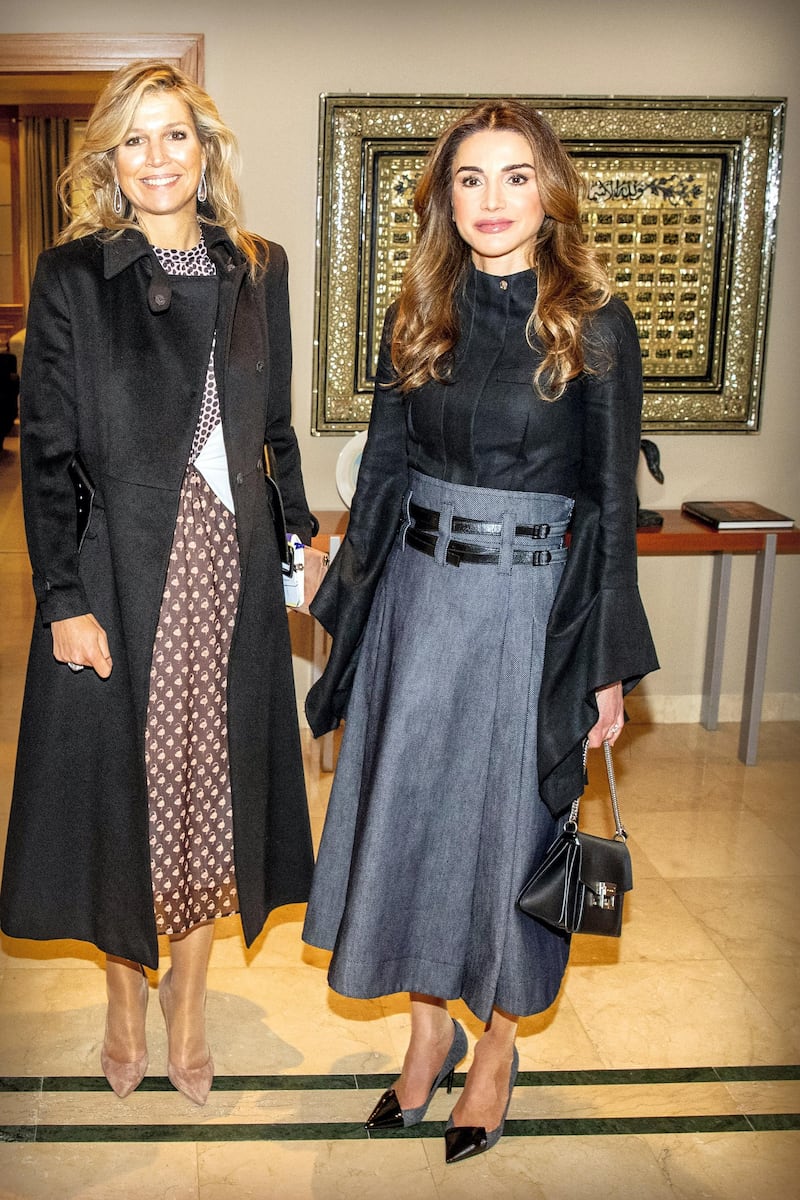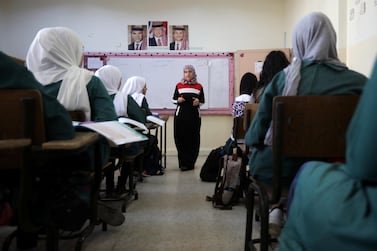Jordan’s queen has taken the unprecedented step of releasing a public letter to address criticism of her Queen Rania Teacher Training Academy.
In a move in which Queen Rania Abdullah herself acknowledged as unusual, she addressed what she described as slanderous accusations in a letter posted on her official Facebook account on Thursday, written in both Arabic and English.
“I thought I had grown accustomed to being intentionally thrust out of nowhere into debates occupying public opinion – that is, until the recent teachers' strike, which has thankfully ended with the return of our students to their schools,” she wrote.
“This time, I found myself in the eye of the storm and at the centre of a disproportionate smear campaign, with no idea why I had been dragged into it!”
Jordan’s public schools resumed classes on October 6 after a month-long strike by teachers across the country to protest against low pay and demand a 50 per cent salary increase that they say they were promised by the government five years ago. The protest action organised by the Jordanian Teachers’ Syndicate began with thousands of teachers taking to the streets of Amman on September 5.
The strike exacerbated tensions between the ruling elite and the general public, and Queen Rania was accused of not showing the teachers adequate support after failing to issue an official statement backing their movement, despite her involvement with the educational sector. Subsequently, the role and public funding of educational institutions sponsored by the queen were called into question.
In her letter, Queen Rania said the aim of the academy was to provide teachers with “the most effective in-service training programmes to improve the quality of our children's education”. She added that a decline in the competitiveness of Jordan’s education led to the need for “collaboration” between the academy and the Ministry of Education.
Addressing the questions concerning the intentions behind the teacher training academy, she said: “I have never denied that the pre-service diploma has received government funding; no not-for-profit institution can undertake a project of this scale without government support and national consensus.
“Without offering a single shred of evidence, some have portrayed me as a powerful businesswoman in possession of hundreds of millions, or as a figure with considerable political sway on affairs of the state. It is as though a wife's proximity to her husband is something to be held against her, and then be used to undermine His Majesty, or settle old scores.”
This is not the first time the queen, wife of King Abdullah II, has faced criticism. Last year, her intervention in state matters came under fire when two MPs said she had no authority to be involved in such issues. During a parliamentary debate on government guidelines, MP Ghazi Al Hawamleh said interlinking the king’s and queen’s powers was "a burden on Jordan and its policy”.
Speaking to The National, a source in the academy said the accusation that the training centre had employed a foreigner as general manager on a substantial salary was not true, and that all employees were Jordanians.
In her statement the Queen added: “Over the years, I have read abusive and hurtful comments on social media platforms that no Jordanian would accept about their own family, as well as words falsely attributed to me that defy logic and reason. I am not referring to those who disagree with me or have a different point of view – I accept and respect their right to do so, but that does not justify the campaign against me.”






